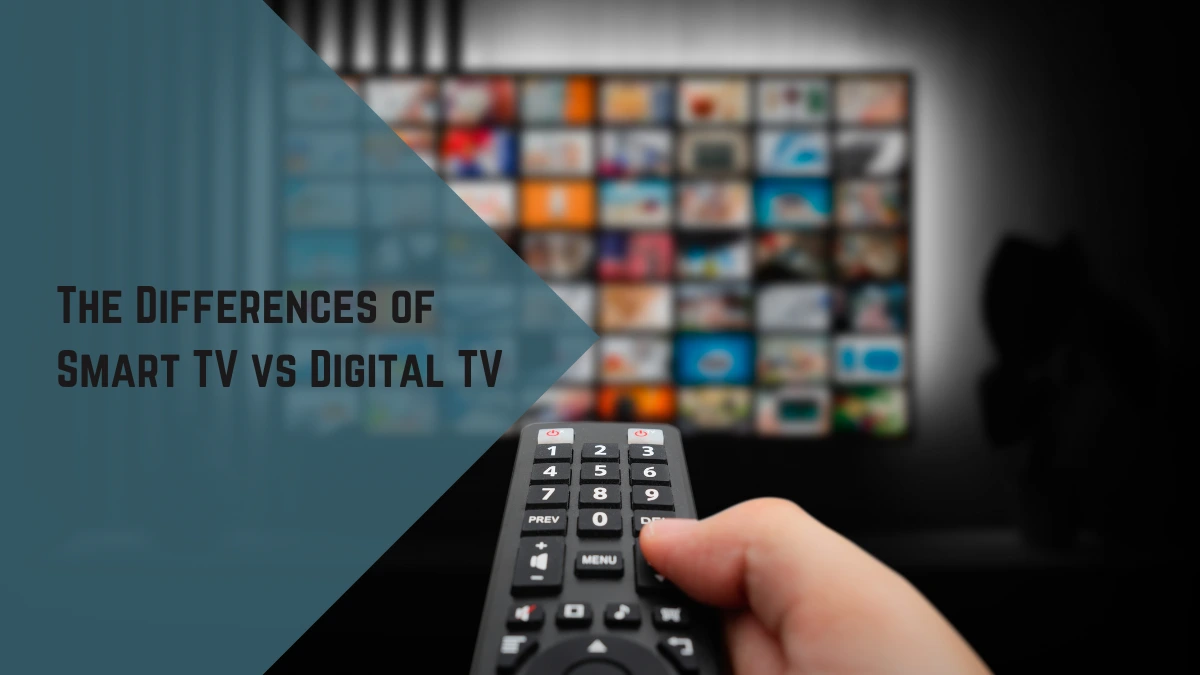Digital TV and Smart TV have become a revolution in the current era because they have many interesting features. But it cannot be denied that Digital TV vs Smart TV has significant differences.
Although both have advanced features that try to fulfill the current digital era, do you know the differences between Digital TV vs Smart TV?
This article will inform of 5 differences between Digital TV vs Smart TV that you need to know as a consideration before determining entertainment services for your home.
What is Digital TV?

Digital TV is a broadcasting technology that uses digital signals to transmit images and sound. Unlike analog TV which relies on radio frequency signals, digital TV transmits signals in the form of digital data (bits), resulting in sharper images and clearer sound.
In addition, digital TV also allows for more efficient broadcasting, as one frequency can accommodate more channels. The technology also supports additional features such as an Electronic Program Guide (EPG) and high-definition (HD) quality viewing.
What is a Smart TV?

A smart TV is a television that can connect to the internet and run apps typically found on smartphones or tablets.
With a smart TV, users can stream content from popular services like Netflix, Disney+, YouTube, and Spotify without needing extra devices. This sets smart TVs apart from traditional televisions, which only display broadcasted TV channels.
Additionally, smart TVs offer advanced features such as web browsing, voice control, and compatibility with other smart home devices like speakers or security cameras.
The Difference of Digital TV vs Smart TV
There the simple differences between Digital TV vs Smart TV
| Aspects | Digital TV | Smart TV |
| Connection | No internet required | Requires internet for most features |
| Impressions | Digital television broadcasts only | Digital television broadcast, streaming, and apps |
| Features | Play media from USB | App installation, internet access, streaming, and gaming |
| Antenna | Usually uses a built-in antenna | Can use an HD antenna or connect to the internet |
| Operating System | Does not have a built-in operating system | Has an operating system like Android TV or webOS |
1. In terms of antenna usage
Digital TVs generally use deep antennas, while smart TVs utilize parabolic antennas.
2. In terms of the variety of shows available
Digital TVs only receive shows from digital broadcasts. Meanwhile, smart TVs offer access to a wider range of shows, including apps on the device.
3. The type of signal used
Digital TVs require digital signals that can pick up signals over long distances. On the other hand, smart TVs combine analog signals and an internet connection to access a wide range of shows.
4. From the supporting features available
Digital TV is equipped with a DTV feature that enables digital TV channel search without the need for a set-top box (STB). This feature makes it easier to convert digital signals into sound and images displayed on TV.
5. In terms of internet connection usage
The main difference in how digital TV works is that digital TV does not require an internet connection, while smart TV requires the internet to access TV channels.
With an internet connection, smart TVs allow you to enjoy more entertainment media, such as web browsers, streaming apps, and TV games, which cannot be accessed with digital TVs.
Those are the 5 key differences between Digital TV vs Smart TV that you need to know. By knowing some of the differences, hopefully, you can choose the best one for your home entertainment services. [UN]

